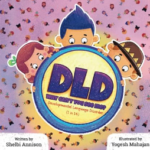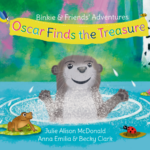Developmental Language Disorder
Developmental Language Disorder
What is DLD?
Developmental language disorder (DLD) is a brain difference that makes talking and understanding language difficult.
DLD can be described as a significant ongoing difficulty with talking and/or understanding what other people say for which there is no obvious cause. It’s a neurodevelopmental condition.
How is DLD diagnosed?
A child can be diagnosed with DLD if their language difficulties:
- are likely to carry on into adulthood
- are having a significant impact on their progress at school, or on their communication and well-being in everyday life
- mean they are unlikely to catch up without help
- cannot be explained by other needs such as deafness or learning disabilities.
What causes DLD?
DLD looks different in all children. It is complicated to understand because we don’t really know the cause. Scientists think that the part of the brain responsible for speech and language might be wired a little differently from that of a person without DLD, but differences won’t show up on a brain scan. We also know that genetics play a part in DLD, but there is no medical test to see if a child has it or not.
How common is DLD?
Studies have shown that in five-year-olds, DLD affects about two children in every classroom (about seven per cent). This means that it is more common than autism. Speech and Language Therapists in Bradford regularly diagnose DLD in children in our community.
What problems does DLD cause for a child?
Children with DLD have difficulty understanding spoken language. They may also have difficulties putting their thoughts into words and sentences. They may:
- find it difficult to understand and learn the meaning of words
- find it difficult to follow instructions
- find it difficult to answer questions
- struggle to learn or remember words they want to use
- struggle to join words together in a way that makes sense to others
- sound muddled; it can be difficult to follow what they are saying
- find it hard to join in and follow what is going on in the classroom and in the playground.
What can I do to support a child with DLD?
Some things that are often helpful for children and young people with DLD are to:
- make things as visual as possible – use gestures, signing, pictures, drawing, diagrams, videos and showing to help your child to understand
- encourage your child to use visual strategies to get their message across
- use simple and repetitive language – expect to repeat things many times before your child learns to understand and use the language you are teaching
- make sure your child is given lots of time – they need time to process what is said to them and they need time to process what they want to say
- as your child gets older, support them in feeling confident in explaining their needs and asking for help
- attend a parent group called ‘DLD Together’ to learn more about DLD and what this means for your child. Speak to our parent advice line to find out more – contact details on this page.
Books for DLD
These children’s books are written by parents, people with DLD and professionals. They each aim to introduce children to Developmental Language Disorder (DLD) in an accessible and constructive way.
Dan and the Paper Airplane by Camesha Russell and Jinean Cheng
 In the Dan and Daria series, kids with DLD finally get to see themselves in the pages of a book! As they journey with Dan and Daria, kids with DLD can be inspired to face their own challenges. Friends, teachers, and family members can gain a deeper understanding and empathy for those who sometimes have trouble with words.
In the Dan and Daria series, kids with DLD finally get to see themselves in the pages of a book! As they journey with Dan and Daria, kids with DLD can be inspired to face their own challenges. Friends, teachers, and family members can gain a deeper understanding and empathy for those who sometimes have trouble with words.
Meet DLD by Loren Crisp
 Shelbi Annison was diagnosed with Developmental Language Disorder (DLD) as an adult which inspired her to write the DLD; Why Can’t You See Me? Poem. The poem has now been adapted into a children’s illustrated book which aims to help raise awareness and understanding of DLD. To give readers an valuable insight, understanding, compassion and empathy for the daily challenge those with DLD may face.
Shelbi Annison was diagnosed with Developmental Language Disorder (DLD) as an adult which inspired her to write the DLD; Why Can’t You See Me? Poem. The poem has now been adapted into a children’s illustrated book which aims to help raise awareness and understanding of DLD. To give readers an valuable insight, understanding, compassion and empathy for the daily challenge those with DLD may face.
Harry’s Story by Kate Kempton
 Harry enjoys school, but faces daily challenges due to his language difficulties. When he is asked to write a story, he struggles to find the words to put his thoughts onto paper. He learns to share his stories through pictures instead and, in doing so, helps his supportive teacher understand what she can do to make life easier for him.
Harry enjoys school, but faces daily challenges due to his language difficulties. When he is asked to write a story, he struggles to find the words to put his thoughts onto paper. He learns to share his stories through pictures instead and, in doing so, helps his supportive teacher understand what she can do to make life easier for him.
Oscar finds the treasure by Julie Alison McDonald, Anna Emilia and Becky Clark
 Meet Oscar and his friends who go on a treasure hunt and have great fun searching for clues and solving them together. Oscar is a smart otter who sometimes finds understanding words and talking tricky. In the story, we hear how Oscar uses different strategies to help him to communicate with his friends. These helpful tips are reinforced by Ladybird Jemima at the bottom of each of the relevant pages.
Meet Oscar and his friends who go on a treasure hunt and have great fun searching for clues and solving them together. Oscar is a smart otter who sometimes finds understanding words and talking tricky. In the story, we hear how Oscar uses different strategies to help him to communicate with his friends. These helpful tips are reinforced by Ladybird Jemima at the bottom of each of the relevant pages.
DLD from a child’s point of view
The videos below give you an insight as to how children view their own experience of DLD.
DLD for older children and young people
The DLD and Me website is a useful resource for older children and teens, as well as offering advice to parents and teachers. The videos below give an insight as to how a young person views their own experience of DLD. The second video was produced by Ellen who has DLD – she shares her thoughts on how to help someone like her on this website.
Other sources of help and support
Afasic supports and provides information for families with children and young adults who have Speech Language and Communication Needs (SLCN) with a focus on Developmental Language Disorder (DLD).
Afasic DLD card – purchase a low cost, credit card sized, laminated card explaining to others what DLD is, and how they can help.
Speech and Language UK is a charity providing information and advice for parents, and supporting children and young people to gain the skills they need so they aren’t left behind, waiting to be understood.
NAPLIC has short videos and helpful leaflets to support families and schools. They are a national organisation of teachers, speech and language therapists and other professionals.
Moor House Research and Training Institute offers a range of courses and webinars to help schools and teachers support pupils with DLD.
Raising Awareness of Developmental Language Disorder (RADLD) – this website was created to raise awareness of DLD and was previously known as the RALLI campaign. It has resources that explain what DLD is, the impact it can have, how to get help and how to raise awareness.